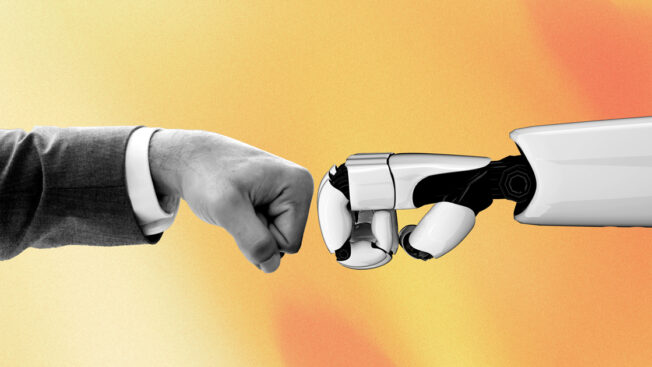The brightest minds in marketing and tech converge at NexTech, Nov. 14–15 in NYC. Get your pass for the latest on generative AI, gaming and more.
The advertising industry is increasingly adopting generative AI to improve workflow and save time on mundane tasks, albeit at uneven rates. Against the backdrop of this excitement is apprehension over how AI will impact certain human jobs. Over the last few weeks, more data has emerged, offering a look into that impact.
In a survey of more than 200 marketing professionals from agencies, business-to-business and business-to-consumer companies, nonprofits, and publishers, 11.5% C-Suite and VPs stated they either already replaced human employees with generative AI or had plans in progress to do so, according to a report from ad platform Basis Technologies, which sells automation software.
“I am a bit surprised with that number because we’re still in the early stages of this [technology],” said Katie Risch, CMO at Basis Technologies.
The report also found that 10.4% of marketers say their organization has replaced human tasks with AI solutions in the last 12 months.
For agencies, the excitement around AI has led to creating task forces and steering groups to help better serve clients. Despite the hype, not all marketers have fully embraced it. Brand safety concerns and fears of diminished brand authenticity have made some marketers cautious. Analysts assume job losses from generative AI over the next two years will be modest until questions around copyright, plagiarism, bias, ethics and accuracy are resolved.
Elsewhere, a recent report by Forrester predicted some 33,000 ad agency jobs, amounting to 7.5% of the total agency workforce, will be replaced by AI by 2030. And nearly one-third of the losses, or 11,000 jobs, will be linked to generative AI.
The primary jobs at risk of replacement are clerical, secretarial, and administrative jobs (28% of losses), sales jobs (22%), and market research (18%), per Forrester.
Generative AI will have the most impact on scalable creative tasks, such as copywriting or photo production, said Wesley ter Haar, co-founder of MediaMonks.
Most people agree that AI technologies will not completely replace human jobs. Instead, people must embrace and incorporate this technology into their workflows. That could inevitably lead to smaller team sizes.


